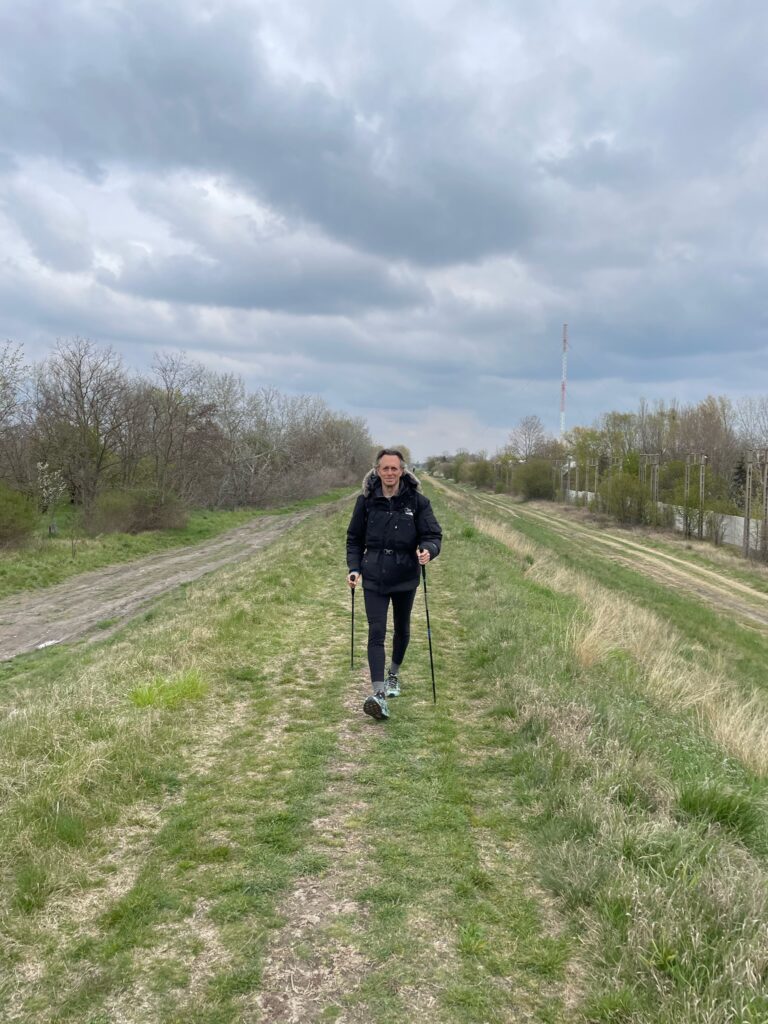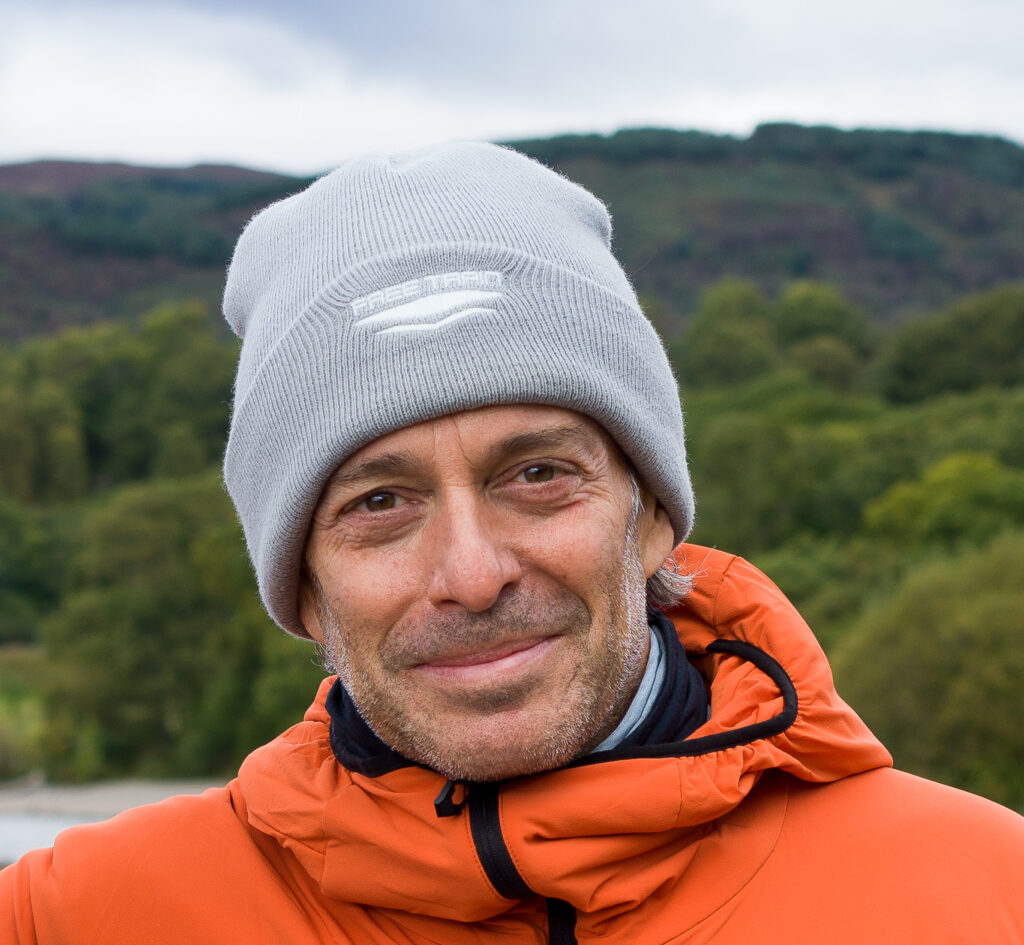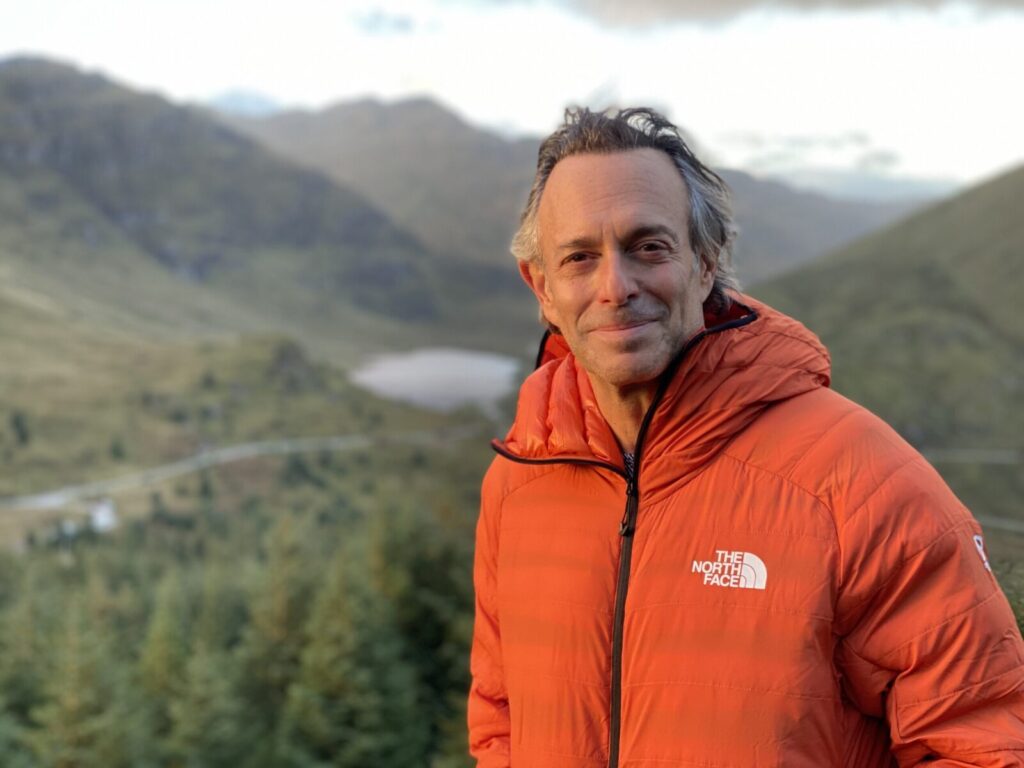The latest IPCC report states that there is no way to keep global warming to 1.5 degrees without eliminating the CO2 already in our atmosphere. It is unlikely that natural solutions alone will be sufficient. Technological solutions for CO2 removal must be radically upgraded at the same time. So why isn’t everyone talking about removing CO2?
One man is on a mission to change that. Craig Cohon, a 59-year-old from Canada, has joined forces with the global youth movement “ReEarth Initiative” to start a new global conversation on CO2 removal.
Not only has Craig invested his pension fund in solutions to remove CO2, he is walking from London to Istanbul, through 82 towns and cities to raise awareness of the issue. Along the way, he walks and talks with mayors, CEOs, activists, scientists and policymakers about the opportunities and challenges of removing CO2.
On January 3rd, this Canadian entrepreneur set off from London on a five-month journey on which he will walk over 4,000 km across Europe, through the United Kingdom, France, Belgium, Germany, Poland, the Czech Republic, Austria, Slovakia, Hungary, Serbia, Bulgaria, Greece and Turkey.
He should arrive in Istanbul on June 5th, the day of his sixtieth birthday and the International Day of Environmental Protection. On April 15th, Cohon crossed the Hungarian border with Serbia, arrived in Belgrade on April 22nd, and headed further southwest, towards Bulgaria.
In 2022, Craig Cohon launched the “Walk it back” campaign after becoming the first citizen to undertake a personal “Lifetime Carbon Audit” under COP26 (United Nations Climate Change Conference). This process led him to the molecular details of calculating how many tonnes of CO2 he had emitted during decades of fast-paced life, and last November Cohon invested over $1 million in CO2 removal projects – calling it repayment of his debt to planet Earth.

Association Renewable Energy Sources of Serbia used Craig Cohon’s stay in Serbia as an excellent opportunity to do an interview for the official website and thus additionally contribute to raising awareness about the importance of decarbonization:
Before we start the interview, we congratulate you on the project that not only spreads awareness about the amount of pollution caused by CO2, but also greatly raises the level of awareness about how important it is that all of us, as inhabitants of planet Earth, get involved in reducing the level and mitigating the consequences of CO2 pollution.
When you decided on this venture, what kind of reactions did you encounter in your environment?
When I undertook my “Lifetime Carbon Audit” and set off on a journey from London to Istanbul on foot, my family and all my friends thought I was completely out of my mind, but I guess that’s always the case when someone decides to do something out of the ordinary. I believe we don’t talk enough about carbon, and we don’t pay attention to the extent to which CO2 negatively affects our lives. If we don’t change it as soon as possible, we are literally stealing a healthy environment from the future of our descendants. This is not about saving the planet, the planet has its own processes of self-preservation and regeneration, this is about saving humanity.
Given that you’ve been walking around Europe for almost four months now, what conclusion did you draw? Do you think that the awareness of the population is at a satisfactory level when it comes to the problem of CO2 pollution?
I think that awareness exists in everyone and that we can act together. But I am convinced that there is a large number of other problems that the population’s consciousness is preoccupied with, from energy security, through problems at work and in the family, to everyday life problems that every person faces in his/her day. And that is quite understandable. I understand that in such situations it is difficult for the issue of CO2 and climate change to rise to the top of the agenda in the everyday life of the average citizen. That’s the conclusion I’ve come to, but I don’t think it should discourage anyone, I firmly believe there is hope. Because you and I are now talking about the problem of CO2 pollution, that is a good start. Like the rest of the world, Serbia is turning to renewable energy sources, electromobility, sustainable construction and sustainable agriculture will soon follow. I walk through beautiful, wonderful fields and talk to farmers along the way, you have excellent soil in Serbia, and there is a lot of potential for Serbia to join the fight against CO2 pollution through sustainable agriculture.
You participated in the discussion held at the Department of Biology and Ecology of the University of Novi Sad. How did the discussion go and what was the most talked about? What are your impressions?
The discussion went phenomenally. To be honest, we talked about freedom, about the prejudices that the West has towards Serbia and its population. And we talked about how to reduce the level of CO2 in the atmosphere. So, we talked about three things, freedom, prejudices about Serbia and climate change, in that order. Students and young people were very specific, they wanted to get solutions, or at least ideas that could mitigate and eventually solve the problem of climate change and carbon pollution.
Association RES Serbia, in the service of environmental protection, encourages the production and use of electricity from renewable sources. What is your attitude when it comes to the sector of renewable energy sources and do you think that the production of electricity from renewable sources is a good way of working to reduce the amount of CO2 pollution?
I don’t think there is anyone in the world who would give a negative answer to this question. From my point of view, we have three problems: we have to increase the generation of electricity from renewable sources, we have to reduce the long carbon cycle, and we have to return the carbon back to the ground. We need to change the process of obtaining steel and concrete so that we can produce enough renewable electricity to be neutral. I also think that carbon capture and storage is an important transition technology that could speed up the process of getting to 100% of renewable electricity.
Finally, we would like to hear what message you want to send to people, how we can save the planet? As well as do you think that the production of green energy should be more intensive, do you think that more electricity should be produced from renewable sources?
Of course.
And if you have the time and energy, please learn more about CO2 pollution and try to adapt your daily functioning to the fight against it in your own way. I know there are other problems that are much more important to you personally, but for humanity as a whole, whether you are from Canada, Serbia or Tanzania, CO2 pollution is one of the issues we should all agree on and try to make a difference.

Đorđe Popović
Photo credits: Berry Campbell and Adrian Pennick


